Resuscitating a real-life figure on-screen can be a tricky business. Especially if the person you want to portray is still alive. But nonetheless, apart from these initial hiccups, seeing actors becoming the very person and trying to deal with their burdens is inherently riveting. Presidents have a special place in the history of cinema. William McKinley was probably the first president of the US ever recorded on film in 1897 and since then, many real-life and satirized versions of American Supremos have graced the screen. It is our pleasure to bring you the greatest movies about presidents, real-life or otherwise. With that said, here is the list of top president movies ever. You can watch some of these best President movies on Netflix, Hulu, or Amazon Prime.
10. W. (2013)
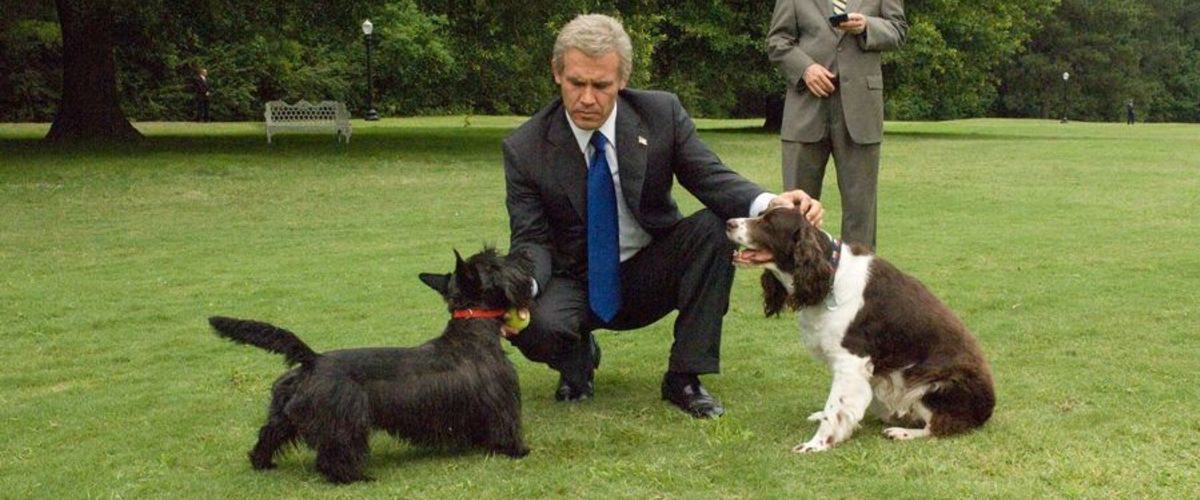
‘W’ shadows the life of former President George W. Bush. Right from his tumultuous and wasteful childhood, growing up in an affluent home and under a strict, demanding father, to his days of glory as probably the most controversial President in history (sorry Trump), the narrative presents a wholesome discourse of his life. While the depiction is a bit rough around the ages, Josh Brolin’s jaw-dropping imitation of Bush is captivating and holds the movie together. Every time Harrelson recreates moments from Bush’s personal life, we move a step closer to his real and absolute psyche and tenets in life.
9. The Butler (2013)
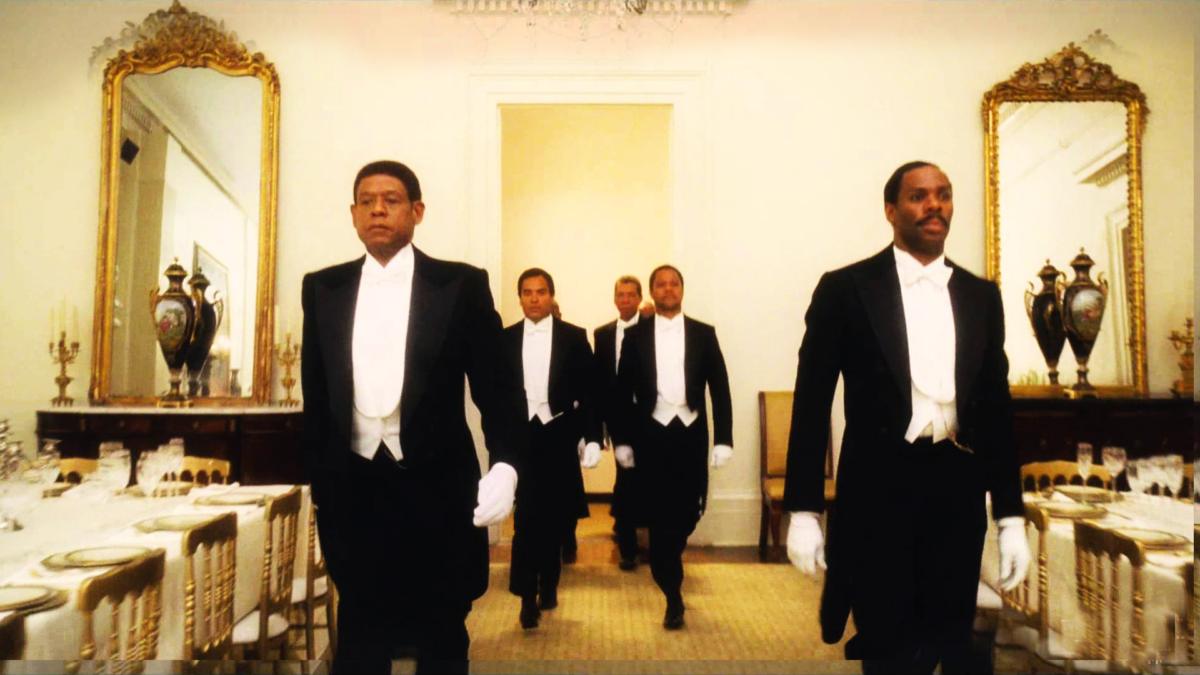
Lee Daniels has been a force and constant source of inspiration for directors of color in the industry with his insightful work. His foray into the chequered socio-political history of America came in the form of ‘The Butler’. Daniels’ complex narrative attributed a lot to its stellar cast, but also to the clever script and the emotion of the period depicted in the film. Set in the ’60s when America started its process of purification, the initial stages of the civil movement, all is perceived through the lens of Cecil Gaines, a butler at the White House for almost eight years. Through his tenure, Presidents come and go, but he remains, anchoring the social metamorphosis that resulted in contemporary modern-day America. Forrest Whittaker is a force of nature and elevates the movie to a level that not watching it will be a waste of your time.
8. The Ides of March (2011)
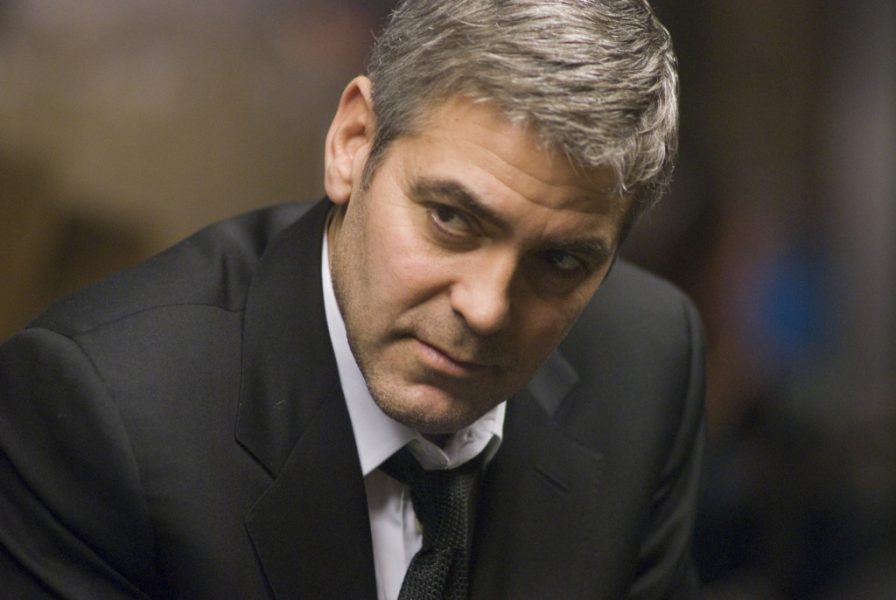
Geroge Clooney’s directorial talents were on display in ‘The Ides of March’. In historical terms, 15 March is observed s the day when all debts are settled, and Clooney expertly and admirably carves out a breathtaking political drama in the same light. Like all political campaigns, Mike Morris gets involved in a scandal that could potentially wither away his chance at presidentship. The only man, who can make or break his career, is his campaign manager Stephen Myers, who himself has high ambitions that he relentlessly pursues. While all managers can’t be like Eli Gold (‘The Good Wife’), Myers is even worse. He is representative of the lowest derivates of mankind and loathes himself in self-interest, ambition, and ruthlessness. Gosling packs a punch with his resounding performance, probably one of his best, and gels well with the taut script to make ‘The Ides of March’ a truly riveting experience.
7. JFK (1991)
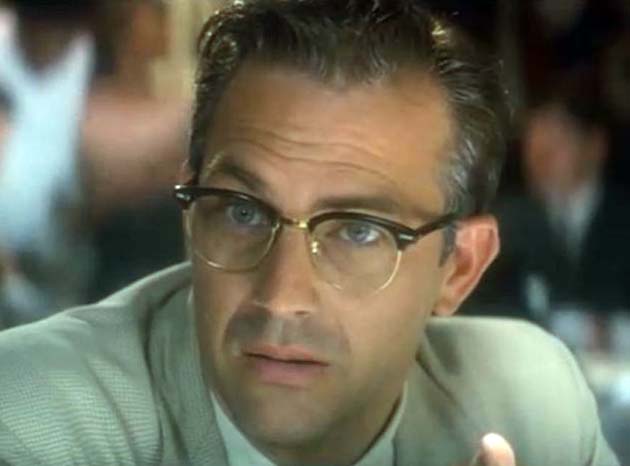
For anyone who wants to learn how to properly structure a film, watch ‘JFK’. Its explosive premise, one of the most infamous events in America’s tumultuous past, is deluded by a tempered and mild-mannered investigation that takes its toll on the pursuits. Kennedy’s sensational assassination unlocks America and the world into unrest and sparks off conspiracy theories that threaten to materialize by virtue of mass hysteria and public paranoia. Jim Garrison keeps his calm and starts the search for truth, while encountering the dark secrets of political lobbying. Professional is probably the word that would best describe the film and its proficient cast led by a typical performance by Kevin Costner.
6. All the Way (2016)
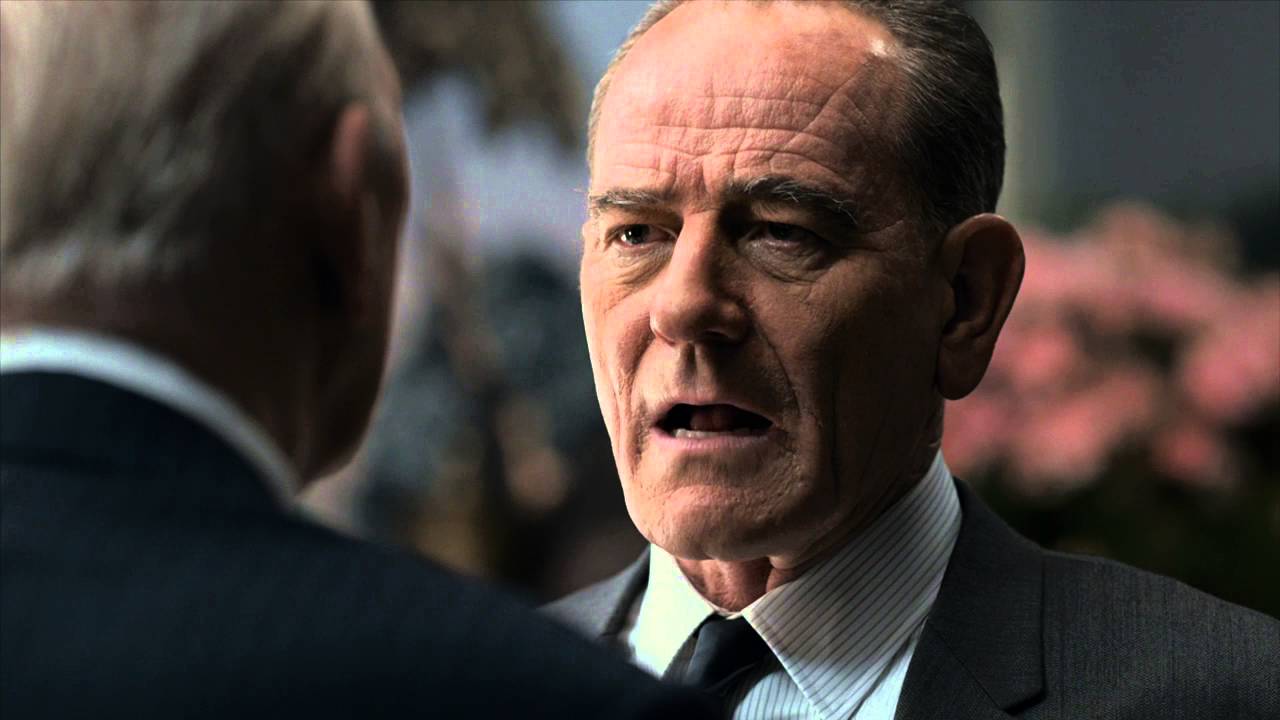
John F. Kennedy’s murder opened doors for an unassuming Lyndon B. Johnson to take the reins of a country in distraught. His immediate goals include maintaining his power and ensuring he is elected again. Bryan Cranston’s stunning inhabitation of the former president is award worthy and makes the television film a real treat for Walter White fans. Even, on the whole, the movie has enough to hold your attention and reward you with an enriching and nostalgic experience.
5. Frost/Nixon (2008)
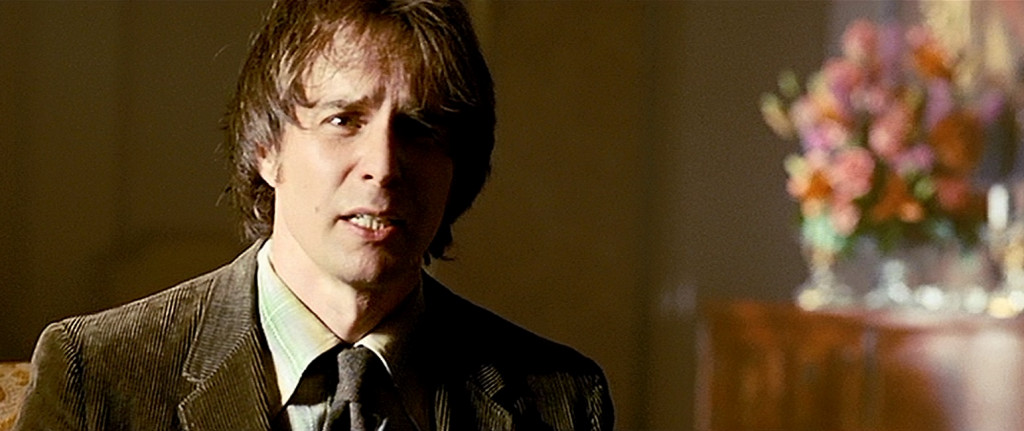
The sensational Watergate scandal that rocked the world and American politics was followed by a series of interviews which would be remembered as more infamous than the events themselves. Robert Frost, an upright and professionally struggling journalist, prepares himself for a series of interviews with the first president in the history of America to resign from office. ‘Frost/Nixon’s triumphant portrait is elevated by a career-defining performance by Sam Rockwell and a march on to greatness by director Ron Howard.
4. The American President (1995)
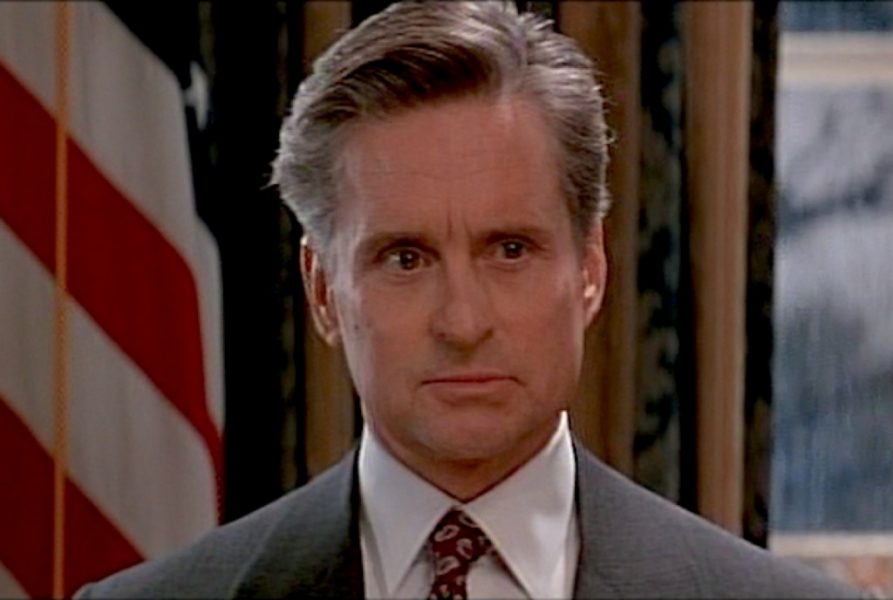
Annette Benning’s charm captivated the whole world and made us fall in love. ‘The American President’, though, benefits from a well-rounded romance-drama that doesn’t overplay its subtle context and neither underplays the unabashed chemistry of its magnetic leads. An outspoken advisor in the White House, Sydney, catches the eye of President Andrew Shephard. Initially reluctant and wary, Sydney accepts an invitation to dinner from Andrew and sparks a romance powerful enough to level you with its spirit. It is the performances of Michael Douglas and Benning which gives the movie legs to stand on and flourish despite the formulaic narrative slightly pegging it back.
3. All the President’s Men (1976)

‘All the President’s Men’ is probably one of the most well-investigated and harrowing accounts of what lured in the shadows during the biggest political scandal of American political history. Starring two iconic actors of the industry, the film picks up in the year 1972, when an unsuspecting journalist catches a whiff of a break-in in the Democratic offices. Determined to hold the perps accountable and despise the current administration in public eye, Bob Woodward joins forces with Carl Bernstein to make sure the sanctity of the offices held once by Lincoln is preserved. The movie surely feels like well-researched, as evident by the exhaustive and meticulous script, but is also strengthened by the bold craftsmanship of Alan J. Puckle. Its tenuous grip on reality never strays and the persistent barrage of facts and questions keeps the viewer on its feet.
2. Dr. Strangelove (1964)

A man of Kubrick’s intelligence and understanding is hard to come by. The unbridled genius and vision of arguably the greatest filmmaker of all time, certainly the most influential, reflected in his works of art, each equally distinctive and brilliant. ‘Dr. Strangelove’ released in the year 1964 when the US found itself gripped motionless by the paranoia and mass hysteria about a delusional nuclear war. The ‘doomsday’, so to speak, became the central satirization tool for Kubrick’s masterful and evocative film. The film defined a whole genre of movies and created a new brand for Kubrick’s altruistic and representative cinema. A fleet of volatile B-54 planes, intended to retaliate against the Soviet Union just in case, is given instructions by the commanding officer of the 823rd base to carry out nuclear bombings in their targeted regions. Despite the initial intention to effectuate a routine exchange, President Muffley and the US face an imminent nuclear war that would virtually wither the world and obliterate the very notion of world peace. Using names like Jack Ripper and King Kong and metaphors like the former riding the nuclear missiles like a rodeo into USSR are just some instances of Kubrick’s meticulousness and inherent genius as a writer. His clever use of such metaphors and a force de majuere performance by Peter Sellers make ‘Dr. Strangelove’ one of the greatest satirizations of war of all times.
1. Lincoln (2012)

Is Daniel Day-Lewis the greatest actor living? Yes. Is his performance in and as Lincoln one of the greatest of the decade? Yes. Now that we have answered the above questions, it is satisfactory to move forward. Spielberg’s mastery as a successful raconteur reflects most strongly in Abraham Lincoln’s biopic and his struggle to abolish slavery. In many ways, ‘Lincoln’ is yet another attempt to resuscitate the greatest president in the history of America. But where the triumvirate of Spielberg, Day-Lewis, and Tony Kushner really makes the difference is the presentation of the apparently pristine leader’s intrinsic human flaws and his shortcomings in his personal life. Burdened with possibly the greatest task in the history of mankind, Lincoln walks like a man of age but acts with the courage and brevity of a bustling teenager. The political genius of the great man finds itself unhinged and cleverly used to reveal a side rarely depicted on-screen. Kushner’s rich and provocative script, Spielberg’s humane retelling of a historic moment in the history of man, and Day-Lewis’ uncanny and indomitable domiciliation of Abraham Lincoln make ‘Lincoln’ one of the greatest movies about presidents of all time.

You must be logged in to post a comment.